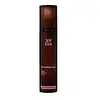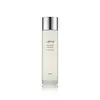What's inside
What's inside
 Key Ingredients
Key Ingredients

 Benefits
Benefits

 Concerns
Concerns

 Ingredients Side-by-side
Ingredients Side-by-side

Water
Skin ConditioningButylene Glycol
HumectantGlycerin
HumectantGlycoproteins
Skin ConditioningSodium Hyaluronate
HumectantBetaine
Humectant1,2-Hexanediol
Skin ConditioningNiacinamide
SmoothingAlcohol
AntimicrobialCaprylic/Capric Triglyceride
MaskingHydrogenated Lecithin
EmulsifyingCeramide NP
Skin ConditioningTurnera Diffusa Leaf Extract
Skin ConditioningXanthan Gum
EmulsifyingArginine
MaskingCarbomer
Emulsion StabilisingAdenosine
Skin ConditioningCamellia Sinensis Callus Culture Extract
PerfumingHydrolyzed Collagen
EmollientCamellia Sinensis Leaf Extract
AntimicrobialHamamelis Virginiana Extract
AntiseborrhoeicLeontopodium Alpinum Extract
Skin ConditioningHoney
HumectantRubus Idaeus Extract
Skin ProtectingVaccinium Angustifolium Fruit Extract
Skin ProtectingEuterpe Oleracea Fruit Extract
Rosa Canina Fruit Oil
EmollientDipotassium Glycyrrhizate
HumectantEthylhexylglycerin
Skin ConditioningDisodium EDTA
Squalane
EmollientPelargonium Graveolens Oil
MaskingWater, Butylene Glycol, Glycerin, Glycoproteins, Sodium Hyaluronate, Betaine, 1,2-Hexanediol, Niacinamide, Alcohol, Caprylic/Capric Triglyceride, Hydrogenated Lecithin, Ceramide NP, Turnera Diffusa Leaf Extract, Xanthan Gum, Arginine, Carbomer, Adenosine, Camellia Sinensis Callus Culture Extract, Hydrolyzed Collagen, Camellia Sinensis Leaf Extract, Hamamelis Virginiana Extract, Leontopodium Alpinum Extract, Honey, Rubus Idaeus Extract, Vaccinium Angustifolium Fruit Extract, Euterpe Oleracea Fruit Extract, Rosa Canina Fruit Oil, Dipotassium Glycyrrhizate, Ethylhexylglycerin, Disodium EDTA, Squalane, Pelargonium Graveolens Oil
Water
Skin ConditioningGlycerin
HumectantButylene Glycol
HumectantNiacinamide
SmoothingAnthemis Nobilis Flower Extract
MaskingStyrene/Vp Copolymer
1,2-Hexanediol
Skin ConditioningCaprylyl Glycol
EmollientOryza Sativa Bran Extract
Skin ConditioningGlycyrrhiza Glabra Root Extract
BleachingCamellia Sinensis Leaf Extract
AntimicrobialRosmarinus Officinalis Leaf Extract
AntimicrobialCentella Asiatica Extract
CleansingChamomilla Recutita Flower Extract
MaskingHamamelis Virginiana Extract
AntiseborrhoeicPolygonum Cuspidatum Root Extract
AntioxidantScutellaria Baicalensis Root Extract
AstringentBetaine
HumectantPanthenol
Skin ConditioningAllantoin
Skin ConditioningSodium PCA
HumectantAdenosine
Skin ConditioningDisodium EDTA
Sodium Hyaluronate
HumectantCarbomer
Emulsion StabilisingArginine
MaskingIllicium Verum Fruit Extract
PerfumingAlchemilla Vulgaris Extract
AstringentAmaranthus Caudatus Extract
Skin ConditioningOlea Europaea Leaf Extract
PerfumingVeronica Officinalis Extract
Skin ConditioningMentha Piperita Leaf Extract
Skin ConditioningUlmus Davidiana Root Extract
Skin ConditioningCynara Scolymus Leaf Extract
Skin ConditioningAvena Sativa Kernel Extract
AbrasiveSambucus Nigra Flower Extract
RefreshingBeta-Glucan
Skin ConditioningCeramide NP
Skin ConditioningChamaecyparis Obtusa Leaf Extract
Skin ConditioningLaminaria Japonica Extract
Skin ProtectingCopper Tripeptide-1
Skin ConditioningAcetyl Hexapeptide-8
HumectantWater, Glycerin, Butylene Glycol, Niacinamide, Anthemis Nobilis Flower Extract, Styrene/Vp Copolymer, 1,2-Hexanediol, Caprylyl Glycol, Oryza Sativa Bran Extract, Glycyrrhiza Glabra Root Extract, Camellia Sinensis Leaf Extract, Rosmarinus Officinalis Leaf Extract, Centella Asiatica Extract, Chamomilla Recutita Flower Extract, Hamamelis Virginiana Extract, Polygonum Cuspidatum Root Extract, Scutellaria Baicalensis Root Extract, Betaine, Panthenol, Allantoin, Sodium PCA, Adenosine, Disodium EDTA, Sodium Hyaluronate, Carbomer, Arginine, Illicium Verum Fruit Extract, Alchemilla Vulgaris Extract, Amaranthus Caudatus Extract, Olea Europaea Leaf Extract, Veronica Officinalis Extract, Mentha Piperita Leaf Extract, Ulmus Davidiana Root Extract, Cynara Scolymus Leaf Extract, Avena Sativa Kernel Extract, Sambucus Nigra Flower Extract, Beta-Glucan, Ceramide NP, Chamaecyparis Obtusa Leaf Extract, Laminaria Japonica Extract, Copper Tripeptide-1, Acetyl Hexapeptide-8
 Reviews
Reviews

Ingredients Explained
These ingredients are found in both products.
Ingredients higher up in an ingredient list are typically present in a larger amount.
1,2-Hexanediol is a synthetic liquid and another multi-functional powerhouse.
It is a:
- Humectant, drawing moisture into the skin
- Emollient, helping to soften skin
- Solvent, dispersing and stabilizing formulas
- Preservative booster, enhancing the antimicrobial activity of other preservatives
Adenosine is in every living organism. It is one of four components in nucleic acids that helps store our DNA.
Adenosine has many benefits when used. These benefits include hydrating the skin, smoothing skin, and reducing wrinkles. Once applied, adenosine increases collagen production. It also helps with improving firmness and tissue repair.
Studies have found adenosine may also help with wound healing.
In skincare products, Adenosine is usually derived from yeast.
Learn more about AdenosineArginine is an amino acid that is important for human development. Your body uses is it to produce hair keratin and skin collagen.
As a cosmetic ingredient, Arginine has antioxidant properties and can also help repair damaged skin. This ingredient is derived either synthetically or from animals.
Arginine isn't fungal acne safe when used in the presence of other lipids (fats, fatty acids, oils, esters, etc). Oils and fats occur naturally within the skin, so take caution when using Arginine if you're prone to fungal acne.
Learn more about ArginineBetaine is a common humectant (a substance that promotes retention of moisture). It's known to be gentle on the skin and can help balance hydration.
This ingredient is best for improving hydration and soothing irritated skin. Studies also show it helps even out skin tone.
Fun fact: Betaine is naturally created in the skin and body. The kind found within cosmetic products can be either plant-derived or synthetic.
Another name for betaine is trimethylglycine.
Learn more about BetaineButylene Glycol (or BG) is used within cosmetic products for a few different reasons:
Overall, Butylene Glycol is a safe and well-rounded ingredient that works well with other ingredients.
Though this ingredient works well with most skin types, some people with sensitive skin may experience a reaction such as allergic rashes, closed comedones, or itchiness.
Learn more about Butylene GlycolCamellia Sinensis Leaf Extract is derived from the leaves of the tea plant. Black tea, green tea, and oolong tea are all harvested from this plant.
This ingredient has many skin benefits:
This ingredient contains polyphenols, a strong antioxidant. Antioxidants help fight off molecules that damage skin cells.
On top of that, the antioxidants in green tea neutralize free-radicals from the sun. This gives the skin some extra UV protection, but should not replace sunscreen.
Many components of tea have anti-inflammatory properties.
Polyphenols and L-theanine help soothe the skin and reduce irritation. The caffeine in Camellia Sinensis Leaf Extract helps calm inflamed blood vessels.
Other compounds found in tea include: Vitamin Bs, linoleic acid, magnesium, calcium, iron, and zinc.
Research has shown both drinking Camellia Sinensis Leaf Tea and applying it to the skin can help boost skin elasticity and hydration. Studies also show using tea extract may reduce sebum, or oil, production.
Learn more about Camellia Sinensis Leaf ExtractCarbomer is a polymer of acrylic acid. Its main role is to create a gel consistency.
A high amount of carbomer can cause pilling or balling up of products. Don't worry, most products contain 1% or less of carbomer.
Ceramide NP is a type of ceramide and formally known as ceramide 3.
Ceramides are intercellular lipids naturally found in our skin that bonds dead skin cells together to create a barrier. They are known for their ability to hold water and thus are a great ingredient for dry skin.
Ceramides are an important building block for our skin barrier. A stronger barrier helps the skin look more firm and hydrated. By bolstering the skin ceramides act as a barrier against irritating ingredients. This can help with inflammation as well.
If you would like to eat ceramides, sweet potatoes contain a small amount.
Read more about other common types of ceramides here:
Ceramide AP
Ceramide EOP
Disodium EDTA plays a role in making products more stable by aiding other preservatives.
It is a chelating agent, meaning it neutralizes metal ions that may be found in a product.
Disodium EDTA is a salt of edetic acid and is found to be safe in cosmetic ingredients.
Learn more about Disodium EDTAGlycerin is already naturally found in your skin. It helps moisturize and protect your skin.
A study from 2016 found glycerin to be more effective as a humectant than AHAs and hyaluronic acid.
As a humectant, it helps the skin stay hydrated by pulling moisture to your skin. The low molecular weight of glycerin allows it to pull moisture into the deeper layers of your skin.
Hydrated skin improves your skin barrier; Your skin barrier helps protect against irritants and bacteria.
Glycerin has also been found to have antimicrobial and antiviral properties. Due to these properties, glycerin is often used in wound and burn treatments.
In cosmetics, glycerin is usually derived from plants such as soybean or palm. However, it can also be sourced from animals, such as tallow or animal fat.
This ingredient is organic, colorless, odorless, and non-toxic.
Glycerin is the name for this ingredient in American English. British English uses Glycerol/Glycerine.
Learn more about GlycerinHamamelis Virginiana Extract comes from the witch hazel plant.
Unless it is specified to be non-alcohol, many types of witch hazel ingredients are distilled in denatured alcohol.
Witch Hazel has astringent, anti-inflammatory, antioxidant, and antibacterial properties.
The tannin content of witch hazel constrict the appearance of pores by drying out proteins. Witch hazel water gets anti-inflammatory and antibacterial properties from its catechin and gallic acid content.
However, witch hazel may be skin-sensitizing due to the tannin and fragrance compounds.
North American Indigenous groups have used witch hazel to help treat inflammation for centuries.
Learn more about Hamamelis Virginiana ExtractNiacinamide is a multitasking form of vitamin B3 that strengthens the skin barrier, reduces pores and dark spots, regulates oil, and improves signs of aging.
And the best part? It's gentle and well-tolerated by most skin types, including sensitive and reactive skin.
You might have heard of "niacin flush", or the reddening of skin that causes itchiness. Niacinamide has not been found to cause this.
In very rare cases, some individuals may not be able to tolerate niacinamide at all or experience an allergic reaction to it.
If you are experiencing flaking, irritation, and dryness with this ingredient, be sure to double check all your products as this ingredient can be found in all categories of skincare.
When incorporating niacinamide into your routine, look out for concentration amounts. Typically, 5% niacinamide provides benefits such as fading dark spots. However, if you have sensitive skin, it is better to begin with a smaller concentration.
When you apply niacinamide to your skin, your body converts it into nicotinamide adenine dinucleotide (NAD). NAD is an essential coenzyme that is already found in your cells as "fuel" and powers countless biological processes.
In your skin, NAD helps repair cell damage, produce new healthy cells, support collagen production, strengthen the skin barrier, and fight environmental stressors (like UV and pollution).
Our natural NAD levels start to decline with age, leading to slower skin repair, visible aging, and a weaker skin barrier. By providing your skin niacinamide, you're recharging your skin's NAD levels. This leads to stronger, healthier, and younger looking skin.
Another name for vitamin B3 is nicotinamide. This vitamin is water-soluble and our bodies don't store it. We obtain Vitamin B3 from either food or skincare. Meat, fish, wheat, yeast, and leafy greens contain vitamin B3.
The type of niacinamide used in skincare is synthetically created.
Learn more about NiacinamideSodium Hyaluronate is hyaluronic acid's salt form. It is commonly derived from the sodium salt of hyaluronic acid.
Like hyaluronic acid, it is great at holding water and acts as a humectant. This makes it a great skin hydrating ingredient.
Sodium Hyaluronate is naturally occurring in our bodies and is mostly found in eye fluid and joints.
These are some other common types of Hyaluronic Acid:
Learn more about Sodium HyaluronateWater. It's the most common cosmetic ingredient of all. You'll usually see it at the top of ingredient lists, meaning that it makes up the largest part of the product.
So why is it so popular? Water most often acts as a solvent - this means that it helps dissolve other ingredients into the formulation.
You'll also recognize water as that liquid we all need to stay alive. If you see this, drink a glass of water. Stay hydrated!
Learn more about Water